Uncategorized
-
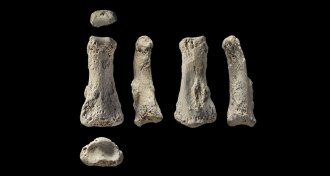 Anthropology
AnthropologyFinger fossil puts people in Arabia at least 86,000 years ago
A desert discovery suggests that Arabia was an ancient human destination.
By Bruce Bower -
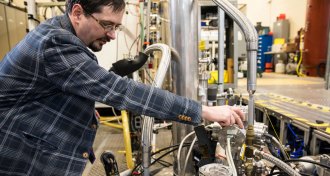 Particle Physics
Particle PhysicsThe search for mysterious dark matter underdogs steps up
Dark matter particles called axions are finally being put to the test.
-
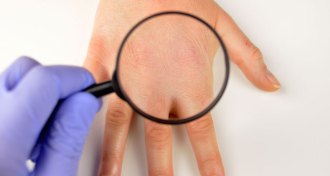 Health & Medicine
Health & MedicineDelusions of skin infestation may not be so rare
Delusional infestation, an unwavering belief that one’s skin is overrun with creatures or objects, may not be as rare as previously thought, researchers say.
-
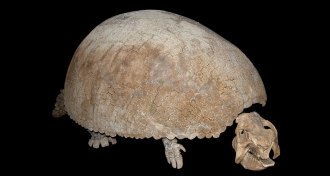 Life
LifeFossils sparked Charles Darwin’s imagination
Darwin’s Fossils recounts how finding extinct species in South America helped Charles Darwin develop his theory of evolution.
By Sid Perkins -
 Tech
TechSheets of tiny bubbles could bring a sense of touch to virtual reality
Shape-shifting films used in sleeves or other garments could provide tactile feedback that makes virtual realities feel more real.
-
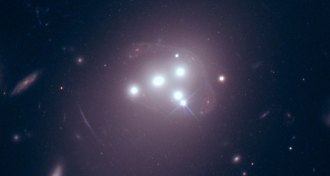 Astronomy
AstronomyDark matter isn’t interacting with itself after all
Hints that a distant galactic collision knocked dark matter askew fizzled with new observations.
-
 Environment
EnvironmentMicroplastics may enter freshwater and soil via compost
Compost is pinpointed as a source of plastic pollution, but environmental fate and effects unknown.
-
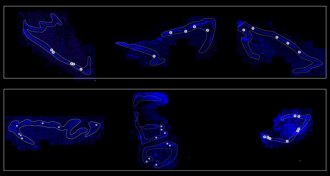 Neuroscience
NeuroscienceHuman brains make new nerve cells — and lots of them — well into old age
In humans, new neurons are still born in old brains, new research suggests.
-
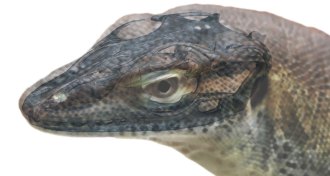 Paleontology
PaleontologyThis ancient lizard may have watched the world through four eyes
A lizard that lived 50 million years ago had both a third and a fourth eye.
-
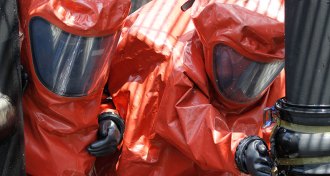 Materials Science
Materials ScienceToxic chemicals turn a new material from porous to protective
A new material switches from a comfortable, breathable form to a sealed-up, protective state when exposed to dangerous chemicals.
-
 Science & Society
Science & SocietyHow many scientists do you know in real life?
Editor in Chief Nancy Shute ponders about memorable scientists and how we can make it easier for people to connect to their work.
By Nancy Shute -
 Paleontology
PaleontologyReaders debate dinosaur designation and more
Readers had questions about the dino family tree and Venus' habitability.